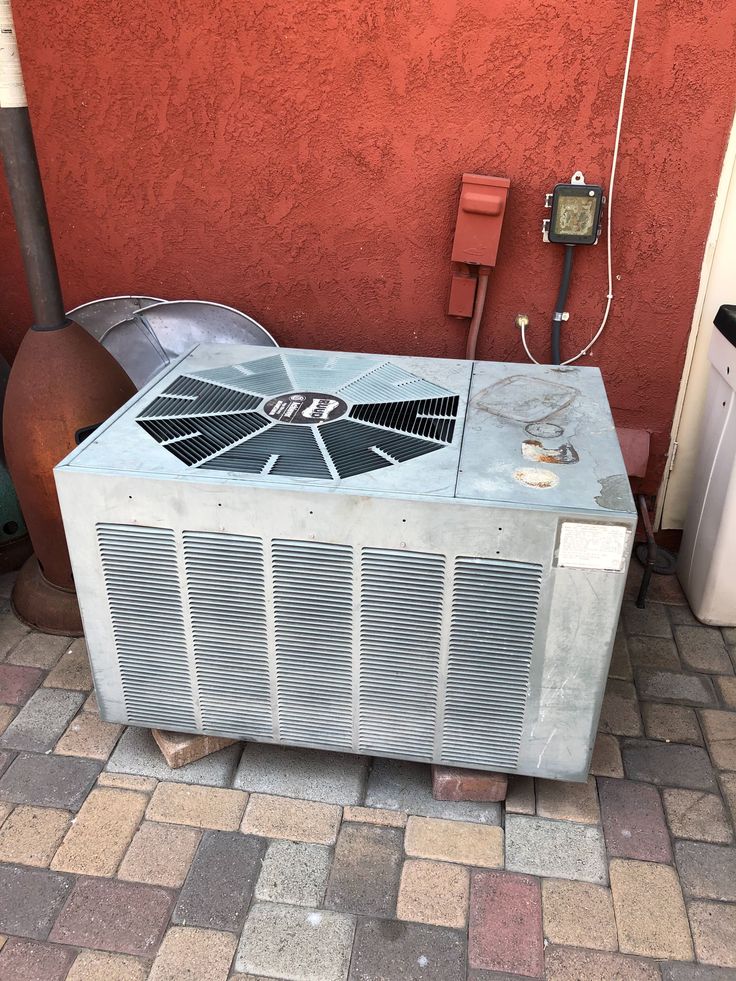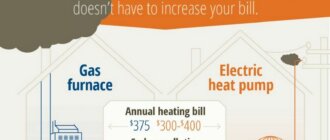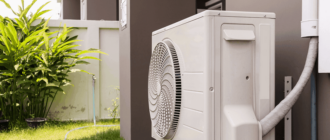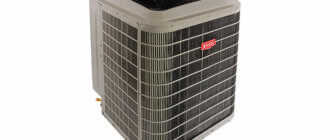Do old AC units use more electricity?
If you are considering replacing your old air conditioner, you may be wondering if new AC units are more efficient and if they will save you money on your energy bills. In this article, we will explore the efficiency of new vs old air conditioners and whether or not old AC units use more electricity.
Old air conditioners can be energy hogs, especially compared to newer models. They often lack the advanced technology and energy-saving features that are present in modern AC units. This means that older units tend to use more electricity to cool your home, leading to higher energy bills.
On the other hand, new air conditioners are designed to be more energy efficient. They use the latest technology to cool your home using less electricity. This can result in significant energy savings and lower monthly bills. So, if you are still relying on an old AC unit, it may be time to consider an upgrade.
So, how much will a new AC unit save you? The exact savings will depend on various factors such as the size of your home, your climate, and your cooling needs. However, on average, new air conditioners can save you up to 20% or more on your energy bills compared to older units. This means that investing in a new AC unit can eventually pay for itself through the savings you will see on your monthly energy bills.
Upgrading to a new air conditioner can not only save you money but also help you reduce your carbon footprint. By using less electricity, you are not only saving money but also contributing to a more sustainable future.
So, if you have been wondering whether or not old air conditioners use more electricity, the answer is yes. Investing in a new, more energy-efficient AC unit can save you money in the long run and help you reduce your impact on the environment. So why wait? Upgrade your old AC unit today and start enjoying the benefits of a more efficient and cost-effective cooling system.
Electricity Consumption of Old AC Units
Many people wonder, do old AC units use more electricity? The answer is generally yes. Older air conditioners are often less energy efficient compared to newer models. This means that they consume more electricity to cool a given space.
If you are concerned about your energy bill and wondering, will a new AC unit save me money? The answer is likely yes. Newer AC units are designed to be more energy efficient, meaning they use less electricity to achieve the same cooling effect as older units.
So, do new AC units use less electricity? Absolutely. Advancements in technology have allowed manufacturers to create air conditioners that require less energy to operate. These newer models are designed to deliver better performance while consuming less electricity.
When comparing old and new air conditioners, you may wonder, how much more efficient are new AC units? New AC units can be significantly more efficient, with some models boasting energy savings of up to 50% compared to older units. However, the exact level of efficiency improvement will depend on the specific make and model of the air conditioner.
Older air conditioners can indeed consume more electricity. Do old air conditioners use more electricity? Yes, they often do. As air conditioning units age, they may experience wear and tear, leading to decreased efficiency and increased electricity consumption.
Investing in a new AC unit can help lower your electric bill. So, will a new AC unit lower my electric bill? In most cases, yes. By replacing an old and inefficient air conditioner with a new, energy-efficient model, you can expect to see a reduction in your monthly electricity costs.
When it comes to energy efficiency, are new air conditioners more efficient? Yes, new air conditioners are typically more efficient than their older counterparts. They are designed with advanced features and technologies that help to optimize energy consumption while providing effective cooling.
So, if you are considering replacing your old AC unit, you may be wondering, are newer AC units more energy efficient? The answer is generally yes. Newer AC units are designed to meet or exceed energy efficiency standards. They utilize innovations such as variable-speed compressors, improved insulation, and advanced control systems to provide better efficiency and reduce electricity consumption.
When comparing the efficiency of a new AC unit vs. an old AC unit, you may wonder, how much will a new AC unit save me? The amount of money you can save will depend on factors such as the size of your home, your current energy usage, and the specific model of the new AC unit. However, it is safe to say that upgrading to a new, energy-efficient unit can result in substantial savings over time.
In summary, replacing an old AC unit with a new one can save you money in the long run. New AC units are more energy efficient, consume less electricity, and can significantly lower your electric bill. So, if you are concerned about energy consumption and cost, it may be worth considering investing in a new, energy-efficient air conditioner.
Factors Contributing to Higher Electricity Usage
When it comes to air conditioning units, there are several factors that contribute to higher electricity usage. Understanding these factors can help you determine whether investing in a new AC unit will save you money in the long run.
- Efficiency: One of the main factors that determine electricity usage is the efficiency of the AC unit. Modern AC units are designed to be more energy efficient compared to older units. They use advanced technology and have higher SEER (Seasonal Energy Efficiency Ratio) ratings, which means they can cool your space with less energy consumption.
- Aging: As air conditioners get older, their efficiency tends to decrease. This is mainly due to wear and tear on the various components, such as the compressor, condenser, and evaporator coil. Older AC units may require more energy to perform at the same level as a new unit.
- Size and capacity: The size and capacity of an AC unit play a significant role in electricity usage. If your unit is too large for your space, it may cycle on and off more frequently, leading to increased energy consumption. On the other hand, if your unit is too small, it may have to work harder to cool the space, resulting in higher electricity usage.
- Maintenance: Regular maintenance is essential to keep your AC unit running efficiently. Neglecting routine maintenance tasks, such as cleaning or replacing air filters and checking for leaks, can lead to reduced efficiency and higher electricity usage.
So, even though old air conditioners may still work, they tend to use more electricity compared to newer, more efficient units. Investing in a new AC unit can potentially lower your electric bill and save you money in the long run.
When considering whether to replace your old AC unit, it’s important to compare the energy efficiency of the old and new units. Look for AC units with higher SEER ratings, as they are more likely to use less electricity. Additionally, consulting with a certified HVAC professional can help you determine the best options for your specific needs and budget.
Age of AC Units and Energy Efficiency
When it comes to air conditioning units, the age of the unit can have a significant impact on its energy efficiency. Older AC units tend to be less energy efficient compared to newer models. This means that they use more electricity to provide the same cooling effect, resulting in higher electrical bills.
So, if you’re wondering, “Will a new air conditioner save me money?” The answer is most likely yes. Newer AC units are designed with advanced technology that allows them to be more energy efficient.
Are newer AC units more energy efficient? Yes, they are. With advancements in technology, newer models are built with higher energy efficiency standards, making them more environmentally friendly and cost-effective to operate.
Do new AC units use less electricity? Absolutely. New AC units are designed to use less electricity while still providing efficient cooling. They are equipped with features such as improved insulation, variable speed compressors, and programmable thermostats, all of which contribute to energy savings.
Comparing new vs old air conditioner, it’s clear that a new AC unit can significantly lower your electric bill. The initial investment in a new unit may seem high, but the long-term savings in energy costs make it a worthwhile investment.
Are new AC units more efficient than old ones? Yes, they are. The energy efficiency ratio (EER) of new AC units is much higher than that of older models. This means that they can provide the same cooling effect using less energy, which translates into savings on your monthly electrical bills.
If you’re wondering how much a new AC unit will save you, it depends on various factors such as the size of your home, your climate, and your usage patterns. However, on average, a new AC unit can save you up to 20-40% on your cooling costs compared to an older unit.
So, to sum it up, new AC units are more efficient and use less electricity compared to old ones. Investing in a new AC unit will not only provide better cooling performance but also save you money in the long run.
Impact of Freon Refrigerants on Energy Consumption
One of the main factors affecting the energy consumption of an air conditioner is the type of refrigerant it uses. In the past, AC units commonly used a type of refrigerant called Freon, also known as R-22. However, newer AC units are now required to use a more environmentally friendly refrigerant known as R-410A.
Old AC Units:
Older AC units that use Freon refrigerant tend to have lower energy efficiency compared to newer models. This is because Freon is less efficient at transferring heat, resulting in the AC unit having to work harder and use more electricity to cool the air. Therefore, old AC units may consume higher amounts of electricity and contribute to higher energy bills.
New AC Units:
On the other hand, new AC units that use R-410A refrigerant are designed to be more energy-efficient. They are specifically engineered to reduce energy consumption and provide better cooling performance. This means that new AC units can cool your space effectively while using less electricity, resulting in potential savings on your electric bill.
Energy Efficiency Ratio (EER):
The energy efficiency of an AC unit can be measured by its Energy Efficiency Ratio (EER). New AC units generally have higher EER ratings compared to older models, indicating their improved energy efficiency. A higher EER rating means that the AC unit can cool a given area more efficiently, using less electricity.
Savings and Benefits:
By upgrading from an old AC unit to a new, more energy-efficient model, you can potentially save a significant amount of money on your electric bills. The exact amount of savings will depend on factors such as the size of the space you need to cool, the efficiency rating of the new AC unit, and the usage patterns.
Old AC UnitNew AC Unit
| Higher electricity consumption | Lower electricity consumption |
| Potential for higher energy bills | Potential for lower energy bills |
| Less efficient cooling | More efficient cooling |
| No significant energy savings | Potential for energy savings |
In conclusion, upgrading to a new AC unit that uses the more efficient R-410A refrigerant can result in lower energy consumption and potential savings on your electric bill. The improved energy efficiency of new AC units makes them a worthwhile investment in terms of both economic and environmental benefits.
Comparison of Energy Consumption between Old and New AC Units
When it comes to the energy consumption of air conditioning units, there is a clear difference between old and new models. It is a common belief that old air conditioners use more electricity compared to new ones. Let’s delve into this topic and find out the facts.
Do old air conditioners use more electricity?
Yes, old air conditioners generally use more electricity. Over time, the efficiency of AC units deteriorates due to wear and tear. The older the AC unit, the lower its efficiency, resulting in higher energy consumption.
How much will a new AC unit save me?
Investing in a new AC unit can lead to significant energy savings. On average, a new air conditioner can save you up to 20-40% in energy costs compared to an old unit.
Do new AC units use less electricity?
Yes, new AC units are designed to be more energy-efficient. Advancements in technology have led to the development of AC units that consume less electricity while delivering the same cooling capacity as their older counterparts.
Will a new AC unit lower my electric bill?
Yes, installing a new AC unit can help lower your electric bill. The higher efficiency of new units translates into reduced energy consumption, which results in lower electricity costs.
Will a new air conditioner save me money?
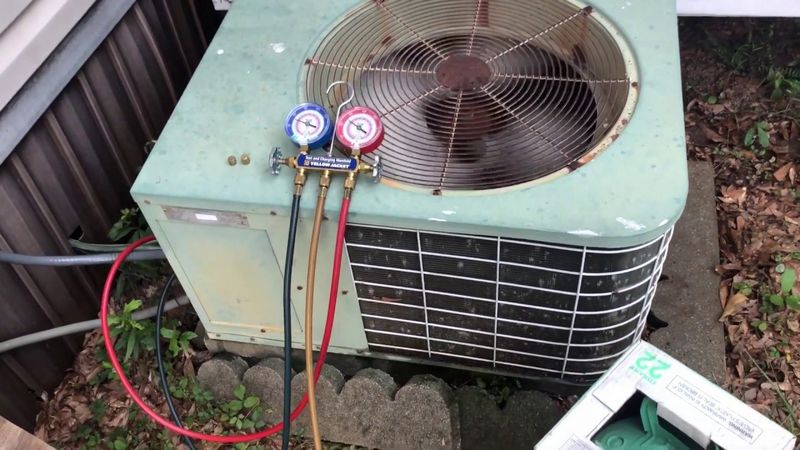
Absolutely. The energy savings gained from using a new air conditioner can add up over time, resulting in lower overall costs compared to operating an old, inefficient AC unit. The initial investment in a new AC unit can be quickly recouped through decreased energy expenses.
New vs old air conditioner: Are new AC units more efficient?
Yes, new AC units are more efficient compared to old ones. With advancements in technology and improved design, new units are specifically engineered to reduce energy consumption without compromising cooling performance.
How much more efficient are new AC units?
New AC units can be significantly more efficient. Depending on the specific model and the efficiency rating, they can achieve energy efficiency ratios (EER) of 10 or higher. This means they use less electricity to produce the same cooling output compared to older units with lower EER ratings.
Conclusion
Upgrading to a new AC unit can result in substantial energy savings and ultimately reduce your electricity bill. New AC units are designed to be more efficient than their older counterparts, delivering the same cooling performance with less energy consumption. Investing in a new AC unit not only helps you save money in the long run, but also contributes to a greener and more sustainable lifestyle.
Tips to Reduce Electricity Usage of Old AC Units
While new air conditioners are generally more efficient and use less electricity compared to old units, there are several steps you can take to reduce the electricity usage of your old AC unit and save money on your energy bills. Here are some tips:
- Regular Maintenance: Make sure to have your old AC unit serviced regularly by a professional. Clean or replace the air filters, check for any leaks, and ensure that the unit is functioning optimally. A well-maintained AC unit consumes less electricity.
- Upgrade the Thermostat: Consider installing a programmable thermostat for your old AC unit. This will allow you to set temperature schedules based on your needs, ensuring that the AC is not running when you don’t need it.
- Seal Air Leaks: Check for any air leaks around windows, doors, and walls and seal them properly. This will prevent cool air from escaping and hot air from entering, reducing the workload on your AC unit.
- Utilize Fans: Use ceiling fans or portable fans in conjunction with your old AC unit to circulate air and create a cooling effect. This will help distribute the cool air more efficiently, allowing you to set the AC temperature higher and save on electricity.
- Improve Insulation: Ensure that your home is well-insulated, especially in the attic and around doors and windows. Adequate insulation helps to keep the cool air inside, reducing the amount of work your AC unit needs to do.
- Use Window Treatments: Install blinds, curtains, or reflective window films to block out the sun’s heat during the hottest parts of the day. This will help keep your home cooler and reduce the load on your AC unit.
- Properly Ventilate: Use exhaust fans in kitchens and bathrooms to remove heat and humidity, reducing the load on your old AC unit. Additionally, ensure that your AC’s outdoor condenser unit has proper airflow and is not obstructed by vegetation or debris.
While implementing these tips can help reduce the electricity usage of your old AC unit, it’s important to note that upgrading to a new, more efficient unit can provide even greater energy savings in the long run. If your old AC unit is outdated and inefficient, it may be worth considering investing in a new one to save money on your electric bill in the future.
Upgrading to a New Energy-Efficient AC System
If you have an old air conditioning unit, you may be wondering if upgrading to a new, energy-efficient AC system is worth it. The short answer is yes!
New AC units use less electricity compared to older models. As technology advances, AC manufacturers have been able to develop systems that are more energy-efficient. This means that a new air conditioner will consume less electricity while still providing the same level of cooling effectiveness.
Not only will a new AC unit save you money on your electric bill, but it will also help to reduce your carbon footprint. Older air conditioners are less efficient and tend to use more energy to achieve the same cooling result. By upgrading to a new energy-efficient AC system, you can lower your electric bill and contribute to a greener environment.
When comparing new AC units to older ones, the difference in efficiency is quite significant. Newer air conditioners use advanced technologies and design features that allow them to cool your home more efficiently. They have higher SEER ratings (Seasonal Energy Efficiency Ratio), which means they use less energy to cool the same amount of space.
It’s difficult to pinpoint exactly how much more efficient a new AC unit is compared to an old one as efficiency can vary depending on the specific units being compared. However, it’s safe to say that newer AC units are generally more energy-efficient. They utilize technologies such as variable-speed compressors, which allow the unit to adjust its cooling capacity depending on the specific needs of your home. This results in less wasted energy and lower electricity bills.
So, if you’re wondering if a new AC unit will save you money, the answer is yes. Upgrading to a new energy-efficient AC system can lead to significant cost savings in the long run. While the initial investment may be higher, the money you save on your monthly electric bills will quickly offset the cost.
Benefits of Upgrading to a New AC Unit
Upgrading to a new AC unit can bring several benefits. Here are some of the advantages:
- Increased energy efficiency: Are old AC units using more electricity? Yes, they usually do. Newer AC units are designed to be more energy-efficient, which means they use less electricity to cool your space. This can result in lower energy bills in the long run.
- Lower electric bills: Will a new AC unit lower my electric bill? Yes, it will. By using less electricity, a new AC unit can help reduce your monthly energy costs. This can lead to substantial savings over time, especially during hot summer months when air conditioning is used frequently.
- Cost savings: Will a new air conditioner save me money? Yes, it can. While the upfront cost of purchasing and installing a new AC unit may seem expensive, the long-term savings in energy bills can offset this initial investment. Over time, you may find that the savings outweigh the initial cost.
- Improved efficiency: Are new air conditioners more efficient? Yes, they are. New AC units are designed with advanced technology and improved efficiency ratings. They can cool your space more effectively, providing better temperature control and increased comfort.
- Reduced environmental impact: New AC units are designed to be more environmentally friendly. They use eco-friendly refrigerants and follow stricter energy efficiency standards. By upgrading to a new AC unit, you can reduce your carbon footprint and contribute to a more sustainable future.
- Long-term savings: How much will a new AC unit save me? The amount of money you can save with a new AC unit depends on various factors, including the size of your space, local electricity rates, and usage patterns. However, studies have shown that new AC units can save homeowners hundreds of dollars annually.
- Improved reliability: Older AC units may be more prone to breakdowns and require frequent repairs. By upgrading to a new AC unit, you can enjoy improved reliability and peace of mind knowing that your unit is less likely to fail during hot summer months.
In conclusion, upgrading to a new AC unit brings numerous benefits, including increased energy efficiency, lower electric bills, cost savings, improved efficiency, reduced environmental impact, long-term savings, and improved reliability. Consider investing in a new AC unit to enjoy these advantages and create a more comfortable and sustainable living environment.
Potential Energy Savings with a New AC System
If you’re wondering whether investing in a new AC unit is worth it, the answer is yes! Newer AC units are designed to be more efficient and can provide significant energy savings compared to older units. Here are some benefits that come with upgrading to a new AC system:
- Increased efficiency: New AC units are designed with advanced technology that allows them to cool your space more efficiently. They use less energy to achieve the same level of cooling, resulting in lower electricity consumption.
- Lower electricity bills: Since new AC units are more efficient, they can significantly reduce your electricity bills. By investing in a new AC system, you can save a substantial amount of money in the long run.
- Energy savings: With a new AC unit, you can expect a noticeable decrease in energy consumption. This not only benefits your wallet but also helps reduce your carbon footprint and contribute to a more sustainable environment.
- Improved comfort: New AC units often come with advanced features such as programmable thermostats and zoning options. These features allow you to optimize cooling in different areas of your home, enhancing overall comfort and convenience.
- Long-term cost savings: While investing in a new AC unit may seem like a significant expense upfront, it can actually save you money in the long run. The energy savings and reduced maintenance costs can outweigh the initial investment, making it a cost-effective choice.
In summary, newer AC units are more energy efficient and can provide substantial energy savings compared to older units. Not only will you lower your electricity bills, but you’ll also enjoy improved comfort and contribute to a greener future. If you’re still using an old AC unit, it’s time to consider upgrading to a new one.
Understanding SEER Ratings for Energy Efficiency
When it comes to energy efficiency in air conditioning units, one important factor to consider is the SEER rating. SEER stands for Seasonal Energy Efficiency Ratio, and it measures the cooling output of an air conditioner compared to the amount of electricity it consumes. The higher the SEER rating, the more energy efficient the unit is.
So, how do SEER ratings affect the efficiency of new AC units compared to old ones? Let’s take a closer look.
New AC vs Old AC Efficiency:
Generally, newer AC units have higher SEER ratings than older ones. This means that they can provide the same cooling output while using less electricity. In other words, a new AC unit with a high SEER rating will be more efficient and consume less energy compared to an older AC unit with a lower SEER rating.
How much more efficient are new AC units?
The difference in efficiency between new and old AC units can be significant. For example, older AC units may have SEER ratings between 8 and 10, while newer units can have SEER ratings of 13 or higher. This means that newer units can be 30% or more efficient than older ones.
Will a new AC unit save me money?
Yes, a new AC unit with a higher SEER rating will save you money in the long run. Although the initial cost of a new AC unit may be higher, the energy savings over time will outweigh the upfront investment. Not only will a new AC unit lower your electric bill, but it will also reduce your carbon footprint by consuming less electricity.
Do new AC units use less electricity?
Yes, new AC units with higher SEER ratings use less electricity compared to older units with lower SEER ratings. By upgrading to a new, more efficient AC unit, you can enjoy the same level of cooling comfort while reducing your energy consumption.
Conclusion:
When it comes to energy efficiency, newer AC units with high SEER ratings are the way to go. Not only will they save you money on your electric bill, but they will also help protect the environment by reducing energy consumption. So, if you’re still using an old AC unit, it’s worth considering an upgrade to a new, more efficient model.
Availability of Rebates and Incentives for Energy-Efficient AC Units
When considering a new air conditioning (AC) unit, one of the main factors to consider is its energy efficiency. Newer AC units have advanced technologies that allow them to use less electricity compared to older models. This not only helps to reduce environmental impact but also helps to lower your electric bill.
Many governments, utility companies, and other organizations understand the importance of promoting energy efficiency and offer various rebates and incentives to encourage the use of energy-efficient AC units. These programs aim to make it more affordable for homeowners to upgrade to newer, more efficient models.
One of the most common types of incentives is a rebate, which is a partial refund of the purchase price of the AC unit. Rebates can vary depending on the specific model and its energy efficiency rating. For example, a higher-rated AC unit may qualify for a larger rebate.
In addition to rebates, some programs also offer tax credits or deductions for purchasing and installing energy-efficient AC units. This can provide further financial benefits and help offset the initial cost of the unit.
To take advantage of these rebates and incentives, homeowners should check with their local government or utility company to see what programs are available in their area. Some programs may have specific eligibility criteria or require proof of purchase and installation.
It is important to note that the availability and details of these rebates and incentives can vary depending on location. Therefore, it is recommended to thoroughly research and explore all available options before making a purchase. This will ensure that you maximize your savings and make the most informed decision.
By upgrading to a new, more energy-efficient AC unit, you can not only lower your electric bill but also contribute to a greener planet. The savings achieved through lower energy consumption can quickly add up, making it a worthwhile investment in the long run.
Environmental Impact of Old AC Units
Old air conditioning units can have a significant environmental impact due to their energy inefficiency. These outdated units consume more electricity compared to newer models, resulting in increased greenhouse gas emissions and greater energy consumption.
When considering how much more efficient new AC units are, it is important to understand that advancements in technology have greatly improved their energy efficiency. Newer AC units are designed to use less electricity while still providing the same level of cooling comfort.
Older air conditioners, on the other hand, tend to use more electricity. They are less energy-efficient and often require more power to cool a given space. As a result, they contribute more to carbon dioxide emissions, which contribute to global warming and climate change.
Replacing an old air conditioner with a newer, more energy-efficient model can lead to significant energy savings. Not only will a new AC unit lower your electric bill, but it will also reduce your carbon footprint and help protect the environment.
Studies have shown that upgrading to a new air conditioner can save homeowners up to 40% on cooling costs. The energy savings translate into financial savings as well, making it a wise investment in the long run.
Additionally, newer AC units often come with advanced features and technologies that further enhance energy efficiency. They may have programmable thermostats, eco-friendly refrigerants, and better insulation, all of which contribute to reducing energy consumption.
In summary, new air conditioners are more energy efficient and have a lower environmental impact compared to old AC units. They use less electricity, save homeowners money, and help reduce greenhouse gas emissions. Upgrading to a newer model not only improves your cooling comfort but also promotes environmental sustainability.
Recycling and Proper Disposal of Old AC Units
When it comes to upgrading your old air conditioner to a new one, it’s important to properly dispose of your old unit. Not only is it environmentally responsible, but it can also save you money in the long run. Old AC units can be energy hogs, using more electricity and increasing your monthly electric bills. By recycling your old AC unit and investing in a new, energy-efficient one, you can lower your energy consumption and reduce your carbon footprint.
Why should you recycle your old AC unit?
Older air conditioners are not as efficient as newer models. This means that they use more electricity to cool your home, resulting in higher energy bills. By recycling your old unit, you can prevent it from ending up in a landfill where it can contribute to pollution and harm the environment. Additionally, recycling your old AC unit allows for the recovery and reuse of valuable materials, reducing the need for new resources and minimizing the overall environmental impact.
How can you properly dispose of your old AC unit?
Properly disposing of your old AC unit involves taking it to a recycling center or contacting your local waste management facility. These facilities have the necessary equipment and knowledge to safely handle and dispose of old air conditioners. They will ensure that harmful refrigerants are properly removed, and the materials are appropriately recycled. Some retailers and manufacturers may also offer recycling programs or take-back options for old AC units when you purchase a new one.
Benefits of recycling your old AC unit
- Protecting the environment: Recycling old AC units helps reduce pollution and the carbon footprint associated with electricity generation.
- Conserving resources: Recycling allows for the recovery and reuse of valuable materials, reducing the need for new resources.
- Saving money: Investing in a new, energy-efficient AC unit can lower your monthly electric bills and save you money in the long run.
- Supporting the circular economy: Recycling your old AC unit contributes to a more sustainable and circular economy by reducing waste and promoting the reuse of materials.
Conclusion
If you’re still using an old AC unit, consider upgrading to a new, energy-efficient model. Not only will a new air conditioner save you money on your electric bill, but it will also reduce your energy consumption and have a positive impact on the environment. And don’t forget to properly dispose of your old AC unit by recycling it at a designated facility. By doing so, you’ll be contributing to a more sustainable future and helping to protect our planet.
Q&A:
Do old AC units consume more electricity than new ones?
Yes, old AC units generally consume more electricity than new ones. This is because newer models have been designed to be more energy efficient, using advanced technology and features to reduce energy usage.
How much electricity does an old AC unit consume?
The electricity consumption of an old AC unit can vary depending on its size, age, and efficiency. On average, older units can consume up to 50% more electricity compared to new units of the same cooling capacity.
Why do old AC units use more electricity?
Old AC units use more electricity due to their outdated technology and less efficient components. These units were not designed with energy efficiency in mind and may have worn-out parts that cause them to consume more electricity for the same cooling output.
Can using an old AC unit significantly increase my electricity bill?
Using an old AC unit can indeed lead to a significant increase in your electricity bill. Since older units consume more electricity, they will work harder and longer to cool your space, resulting in higher energy usage and ultimately a higher electricity bill.
Should I replace my old AC unit to save on electricity costs?
Yes, replacing your old AC unit with a newer, more energy-efficient model is a smart decision if you want to save on electricity costs. The initial investment may seem high, but the long-term energy savings can offset the cost and provide you with a more comfortable and cost-effective cooling solution.
